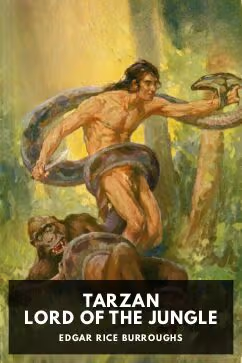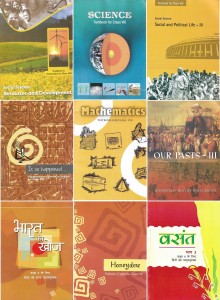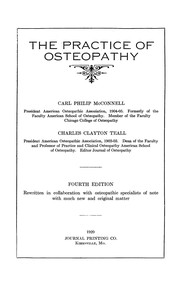Whisky 101: Everything You Need To Know About This Timeless Spirit
From beginner to expert, this whisky guide has all the info you need - from types of whisky to perfect food pairings. Get sipping like a pro!

Whisky isn't just a drink - it's a global story in a glass. Whether you are sipping on a fine Scotch or pouring a glass of smooth Bourbon, every type of whisky tells its own tale, shaped by generations of craftsmanship. From the rolling hills of Scotland to the bustling distilleries of Kentucky, whisky has evolved through centuries, gaining fans worldwide. But what exactly makes whisky so special? It's not just the flavours - it's the people, the places and the passion that go into every bottle. If you have ever been curious about what goes into creating this iconic spirit or why it is so widely loved, keep reading as we explore the fascinating world of whisky.
A Global Romance with Whisky
Whisky's popularity is powered by its variety. Each region brings its own techniques to the table when it comes to crafting, ageing, and flavouring, making every bottle unique. From the smooth sweetness of Bourbon to the smoky kick of Islay Scotch, there's a whisky for every taste. Let's dive into the world of whisky, exploring how it's made, tasting tips, and perfect food pairings so you can fully enjoy this legendary drink.
What Is Whisky?

At its simplest, whisky is a spirit made by distilling fermented grains like malted barley. The key ingredients - barley, corn, rye, and wheat - each bring their own flavours to the whisky. The process includes mashing the grains, fermenting, distilling, and ageing them in oak barrels to develop their taste and colour.
Though Scotland and Ireland often claim to be the birthplace of whisky, its exact origins are a bit of a mystery. As whisky-making spread across the globe, each region added its own twist, creating a diverse collection of flavours and styles.
Also Read: Confused Between Whiskey and Whisky? Know These Stark Differences
From Scotch to Bourbon: The Ultimate Guide to Different Types of Whisky
Scotch Whisky
Scotch has been around for centuries, with its roots in Scotland dating back to 1494. It's typically made from malted barley, either as a single malt or a blend of grains. For a whisky to be labelled Scotch, it has to age for at least three years in wooden barrels. Known for its smoky and peaty flavours, Scotch is best enjoyed slowly, letting its complex tastes unfold with each sip.
Irish Whiskey
Many consider Ireland to be the birthplace of whisky. The Irish even gave it the name "uisce beatha," meaning "water of life." Authentic Irish whiskey is made in Ireland and aged for at least three years. It's known for its smooth, light flavour, often compared to bourbon, though without the smoky edge of Scotch.
Also Read: 8 Tips You Must Remember To Order And Drink Whisky Like A Pro

American Whiskey
In recent years, American whiskey-especially Bourbon and Rye-has exploded in popularity. By law, Bourbon must be at least 51% corn and aged in new charred oak barrels, giving it a sweet caramel flavour. Rye whisky, made from 51% rye grain, has a bolder, spicier taste. Tennessee whisky, which goes through an additional charcoal filtering process, is known for its smoothness, setting it apart from Bourbon.
Canadian Whisky
Canadian whisky is often lighter and smoother than American whisky, thanks to its higher corn content. While it's often referred to as "rye," Canadian whisky can be made from a mix of grains, and its flavour can vary widely. Canada's flexible ageing rules allow distillers to experiment with different styles and profiles.
Japanese Whisky
Crafted since the 1920s, Japanese whisky blends traditional Scotch techniques with a unique Japanese delicacy. Known for its balance and precision, Japanese whisky has earned global praise for its refined flavours. It's great for sipping neat or mixing into cocktails.
Indian Whisky
India's whisky scene has changed drastically over the years. While Scotch once ruled the market, Indian single malts are now making waves on the international stage. India is home to some of the world's fastest-growing whisky brands, like Indri and Rampur, which are gaining recognition globally. Whisky, once a drink for the masses, is now a symbol of India's growing cultural and regional identity.
Also Read: 6 Different Types of Whiskeys a Whiskey or a Whisky Lover Should Know
The Whisky-Making Process: How Is Whisky Made?
- Malting:
The journey starts by soaking barley in water, allowing it to sprout and convert starches into fermentable sugars. The sprouted barley is then dried, sometimes with peat smoke, giving it that distinct smoky flavour. - Mashing:
The dried barley is ground into a grist and mixed with hot water in a mash-tun. This is where enzymes break down the starches into sugars, creating a sweet liquid called wort. - Fermentation:
The wort is then transferred to fermentation tanks, where yeast is added. Over several days, the yeast ferments the sugars, turning them into alcohol and complex flavours, creating a liquid called "wash." - Distillation:
The wash is heated in copper stills, concentrating the alcohol and purifying the spirit. Most whiskies are distilled twice or three times, making the new spirit stronger and cleaner. - Maturation:
The new spirit is aged in oak barrels, where it picks up flavours, aromas, and colour from the wood. This ageing process can take years and is essential to shaping the whisky's character. - Bottling:
Once it reaches the desired flavour and alcohol content, the whisky is filtered and bottled, sometimes with slight dilution to perfect the taste.

Aging Process & Barrel Influence
The Science of Aging
Ageing is the key to transforming whisky from a raw spirit into a smooth, refined drink. Although whisky must age for at least three years, higher-quality whiskies can mature for much longer, gaining deeper flavours along the way. During ageing, the whisky soaks up notes like caramel, vanilla, and spice from the wood, while some of the alcohol evaporates, softening its flavour.
Also Read: Simplifying Whiskey Basics With A Master Distiller
The Barrel's Impact
The barrel you use has a huge effect on the final flavour. Freshly charred oak barrels - used for Bourbon -add rich vanilla and caramel flavours. Reused barrels, often used for Scotch, give the whisky a more complex, layered taste. Some distilleries even age whisky in barrels that were previously used for rum, sherry, or port to add unique notes. The size of the barrel also matters; larger barrels slow down the ageing process, while smaller ones speed it up.

Whisky Tasting: How To Taste Whisky Like A Pro
Step-by-Step Tasting Guide
Whisky tasting is a fun, sensory experience, where each sip reveals different flavours. Here's a quick guide to help you enjoy it like a pro:
- Appearance:
Colour: Whisky's colour ranges from pale gold to deep amber, thanks to the wood used during ageing.
Clarity: Look for clear whisky - any cloudiness is a red flag.

- Nose:
Aroma: Swirl your glass and take a deep sniff. Try to identify scents like fruit, wood, or spice.
Intensity: Is the smell light or overpowering?

- Palate:
Taste: Take a sip and let the flavours unfold on your tongue.
Texture: Notice whether it feels smooth, oily, or thick.
Balance: See how the sweetness, acidity, bitterness, and spice come together.

- Finish:
Lingering Flavours: Think about the aftertaste - does it last long?
Heat: Some whiskies have a smooth finish, while others might give you a warm, spicy kick.
Glassware And Temperature
- Glassware: A tulip-shaped or Glencairn glass is perfect for whisky, helping to focus the aromas.
- Serving Temperature: Younger whiskies, especially spicier ones, are great chilled, while older whiskies are best served at room temperature.

Tips for Beginner
- Try Different Whiskies: Explore a variety of whiskies to build your palate.
- Join a Tasting Group: Meet fellow whisky lovers to share tips and opinions.
- Take Notes: Keep a whisky journal to track what you like and don't like.
- Have Fun: Whisky tasting is all about personal discovery, so don't be afraid to try new things.
8 Whisky Pairings That Will Level Up Your Next Dinner Party
Pairing whisky with food can elevate both the drink and the dish. It's all about balancing the intensity of the flavours - smoky whiskies go great with grilled meats, while fruity ones are perfect for desserts. Check out these expert pairings:
- Talisker 10 YO with Pepper Mushrooms on Toast
The smoky, peppery flavour of Talisker pairs perfectly with earthy mushrooms and black pepper, creating a savoury contrast.
- Laphroaig 10 YO with Dutch Smoked Cheese, Cold Celery Sticks & Wheat Crackers
The bold, peaty notes of Laphroaig blend well with creamy smoked cheese, while the celery adds a fresh crunch.
- Lagavulin 16 YO with Chicken Steak and Mashed Potatoes
Lagavulin's deep smoke and peat enhance grilled chicken, while mashed potatoes add a creamy balance.
- Amrut with Lamb Chops in Pepper Jus
Amrut's fruity, spicy notes bring out the rich flavours of lamb, creating a perfect pairing.
- Crazy Cock Dhua with Tandoori Barra
The smoky flavours of Crazy Cock Dhua match the charred tandoori lamb, with its slight sweetness balancing the rich flavours.
- Ardbeg 10 YO with Grilled Prawns
Ardbeg's intense peatiness highlights the flavours of grilled prawns, while its citrus notes bring out the seafood's natural sweetness.
- Rampur with Smoked Fish and Mustard Sauce
Rampur's smooth texture and fruity notes bring out the delicate flavours of smoked fish, while the mustard sauce adds a tangy kick.

Whisky Myths Busted: What You Really Need to Know
- "Older Whisky is Always Better"
Age doesn't automatically mean better whisky. Some whiskies are great at a younger age, while others improve with time. It all depends on how it's made and aged.
- "Whisky Must Be Drunk Neat"
Enjoy your whisky however you like! You can have it neat, with a splash of water, or on the rocks-there are no rules.
- "You Need Experience to Appreciate Whisky"
Anyone can enjoy whisky. Start with what you like, and your taste will evolve as you try different types.
- "Fermentation Time Equals Quality"
While fermentation is important, other factors like ageing and distillation play a huge role in whisky's quality.
About The Author: Sandeep Arora is India's pioneering Whisky Ambassador and the Director of Spiritual Luxury Living.












)



























































